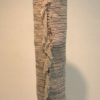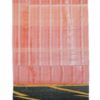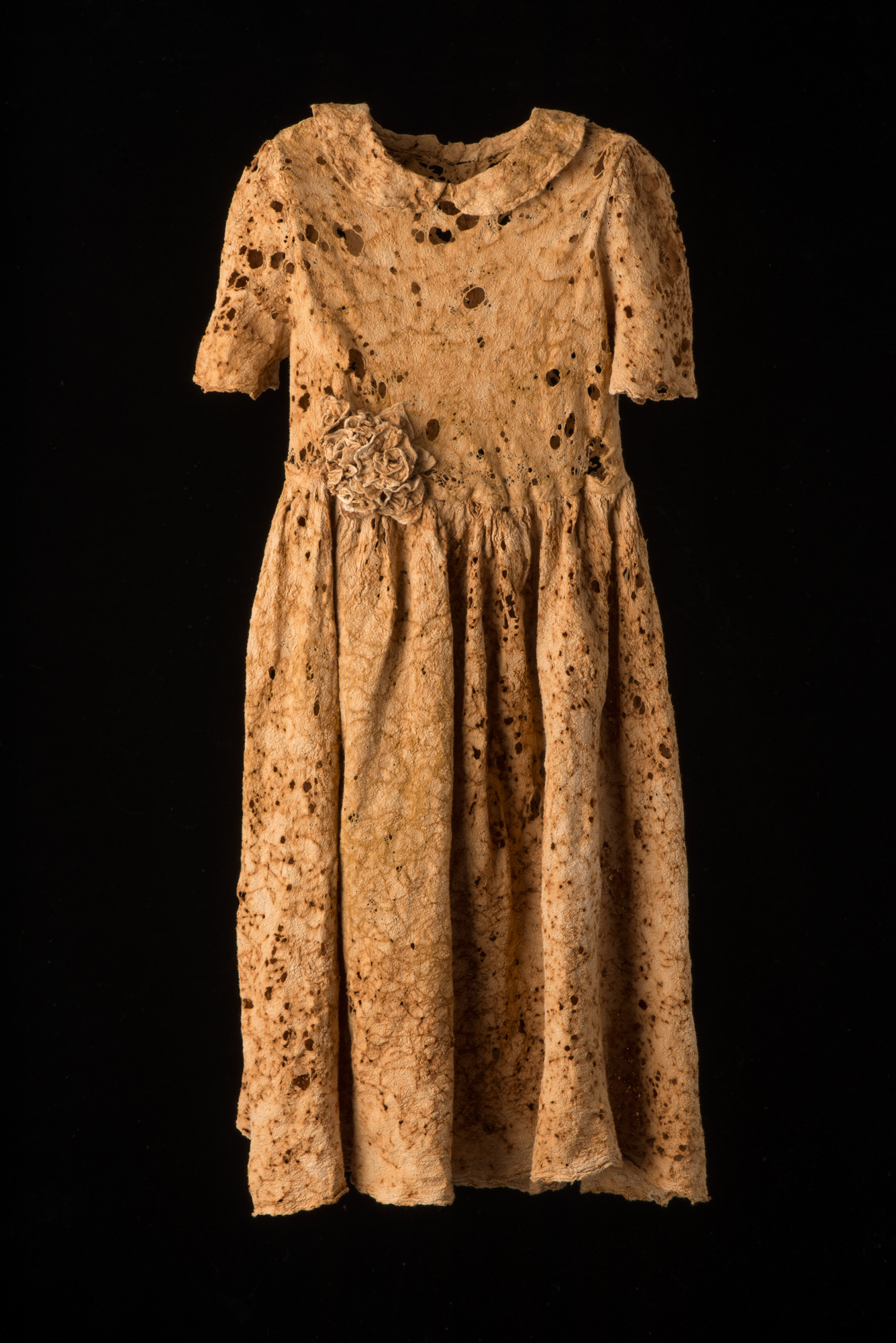Julie Sirek
Please Daddy Stop
paper
27 x 11.5 x 2 in.
I grew up in rural Minnesota with my parents, a brother, and two sisters. My father was a farmer and my mother a housewife. We were the typical all-American family or so it seemed from the outside. My father’s verbal abuse was constant and it took a mental and emotional toll on all of us. After a time, his behavior turned violent. I was in the second grade when I first witnessed him hit my mother. Simply hearing, observing, and being aware of the constant tension between my parents shaped my life.
I work primarily with paper in conjunction with the process of Joomchi. Using this age-old-technique, I transform paper into a unique textile-like material. When Korean mulberry paper is layered, wetted, and agitated the fibers intertwine, stabilize, and strengthen to produce a strong textile-like material. Small pore-like holes begin to develop as the process proceeds, giving the paper an intimate skin-like structure. It can be ripped, torn, and crumbled; but it can also be mended and put back together. Paper is an integral part of our everyday lives. However, because it surrounds us daily, it may be undervalued, just like the victims of domestic violence. In this way, the paper has “human-like” qualities and has become a metaphor in my work for life and death.
I strive to be more than a maker of objects; my aim is to convey my experience and the experiences of others in a truthful and meaningful manner. I want to raise awareness about domestic violence because it means something to me. It is personal. Art is uniquely positioned to move people — to inspire, to spark new ideas, to invite new questions, and to provoke curiosity or outrage. Hopefully, my work succeeds in merging the areas of art, advocacy, education, and community.



